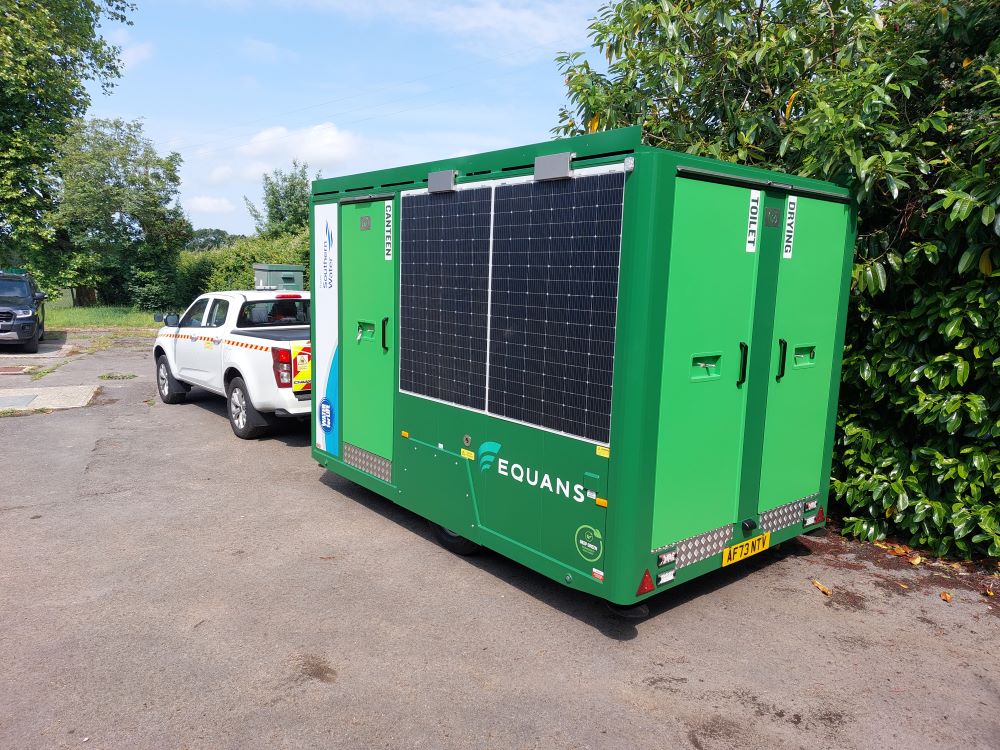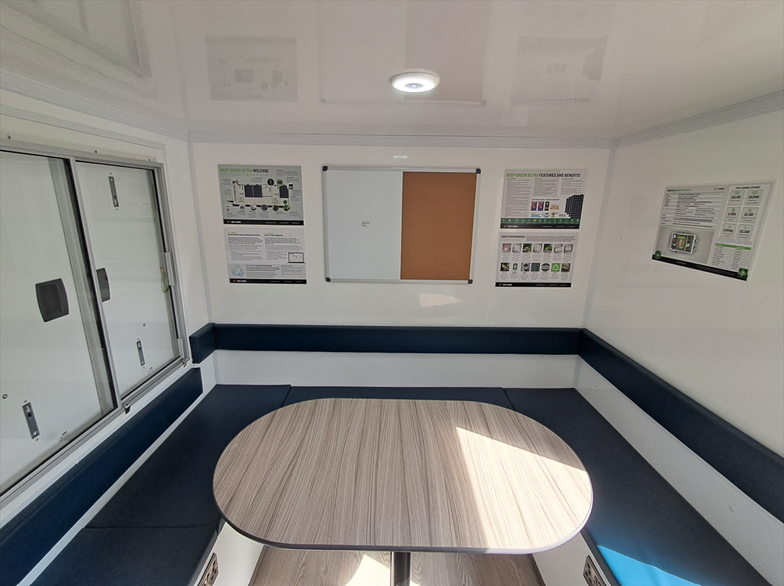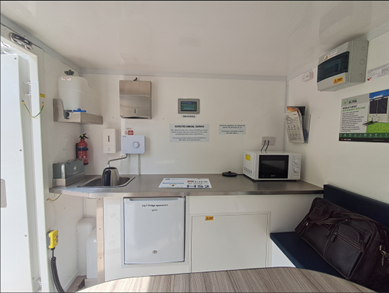Some of our online services will be unavailable today between 3pm and 10pm due to essential maintenance. We apologise for any inconvenience this may cause. Our chat services will remain available to assist with water and wastewater queries.

New sustainable welfare cabins welcomed
First new sustainable welfare cabin is installed at Rogate Water Booster Station in Kent
Rest breaks for frontline workers in our most remote locations have been given a green overhaul thanks to the introduction of brand-new sustainable welfare cabins.
Rogate Water Booster Station in West Sussex is our first countryside site to receive the cutting-edge facility – which features rainwater harvesting for toilets and washbasins, and solar panels.
 This means our colleagues will be playing their part in helping the environment, by consuming less water and cutting their energy use.
This means our colleagues will be playing their part in helping the environment, by consuming less water and cutting their energy use.
Our Facilities Department teamed up with our Facilities Management partners Equans to develop and deliver a solution that brings Southern Water’s commitments to sustainability to the front-line teams.
Dan Ross, our Environment Strategy Manager, said: “There are remote locations across our region where welfare facilities are not always easily accessible, often lacking water or waste connections, resulting in long drives so that our teams can use toilet facilities or take a break.
“It was important to us that we tackled this, and we are doing that by bringing the facilities to them in the most sustainable ways possible.”
The cabins feature micro-flush toilets that use as little as half a litre per flush, waterless urinals, a mini-messroom, changing and drying room, and a rainwater harvesting and grey water recycling system designed to significantly reduce water usage and environmental impact.

In this system, rainwater is captured from the cabin roof, passed through a sieve to remove large debris, and then sterilised using an ultra-violet (UV) filter to ensure it's safe for use. It is then stored in a tank, heated and supplied to the sinks for handwashing.
But it doesn’t stop there – as water from the sinks, known as grey water, is collected once more into another tank to help flush the toilets within the cabin.
Louis Malcovitch, Lifecycle and Programmes Strategy Manager at Equans, added:
“In trials, these cabins have shown themselves to be entirely self-sufficient for over a month, with solar providing over 85% of the power requirements thanks to the panels on the cabin walls.”
While our Rogate station is the first site, there will be a further seven introduced in phase one of the roll out. These will be in Darwell in East Sussex; Turners Hill and Petworth High in West Sussex; Barton Stacey, East Woodhay and Lyndhurst in Hampshire; and Forest Green in Surrey.
